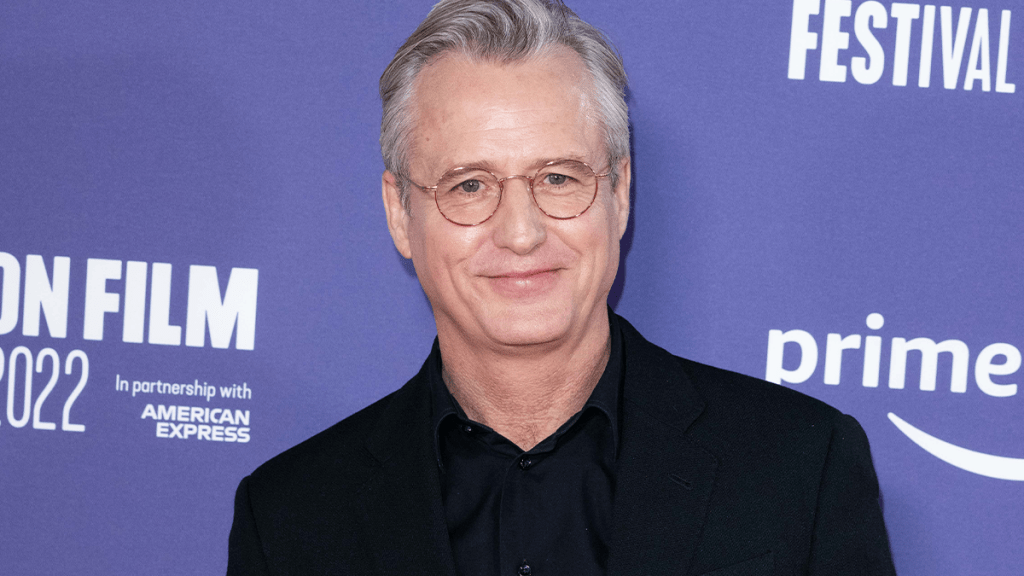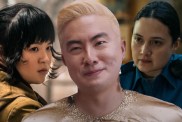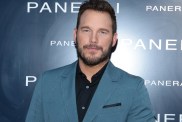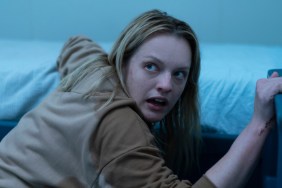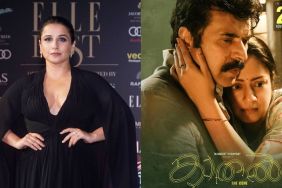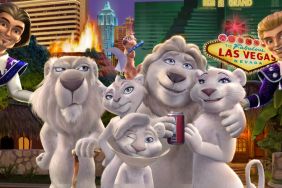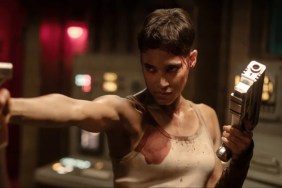ComingSoon Senior Editor Spencer Legacy spoke with The Apology star Linus Roache about playing a deceptive character like Jack and how the actor looks back on Batman Begins.
“Twenty years after the disappearance of her daughter, recovering alcoholic Darlene Hagen (Anna Gunn) is preparing to host her family’s Christmas celebration with her best friend Gretchen (Janeane Garofalo),” reads the official synopsis. “Late Christmas Eve, Darlene’s estranged ex-brother-in-law, Jack (Linus Roache), arrives unannounced, bearing nostalgic gifts and a heavy secret. Soon, Darlene finds herself caught between reason and ruthless instinct. Trapped together by a dangerous storm, a battle of wits escalates to a violent game of revenge.”
The Apology will be in theaters and streaming simultaneously on Shudder and AMC+ on December 16th.
Spencer Legacy: What drew you to The Apology when you first heard about it?
Linus Roache: Well, I mean, first of all, I got this beautiful letter from Alison Star Locke, the writer and director. It’s one of those rare occasions when someone actually knows the whole of your career and really wants you for the role. I wasn’t the second choice — it doesn’t happen that often to me, to be honest. So it was really nice that that happened. Then when I read it, I was like, “Oh wow, this is really out there. This is intense.” And then I had a conversation with Alison and those conversations are meant to go … you have a long chat for about an hour and then you end it by saying, “Well, give me a couple of days and I’ll get back to you.” But I, in the moment, just said, “I’d love to do this.” I just felt like I trusted her. I loved the piece and I really wanted to take on the challenge of Jack. So that’s why I got on board.
At the beginning of the film, Jack is almost disarmingly charming. How difficult was it to balance that deceptively likable side with who Jack really is?
Well, the thing is, that’s how I based the character. But in the end, after doing lots of sort of soul-searching and looking at the despicable nature of his deeds and what he’s done and thinking about how he might have lived with that or not lived with it, in the end he’s in absolute denial. It’s pathological and he’s addicted to his image as a good guy or not a bad man, you know? So basically that’s so strong, that idea that that’s what allows him to do everything he’s doing. He walks in there and that’s the theme of the movie. What does it take for someone to get someone to give up that self-image and actually take responsibility and be accountable for their actions? So in a way, the whole thing is just how he survives. That’s how he is and that’s his cover and he believes in it himself.
He is a very dark character, especially later on. How did you go about getting into that head space?
It’s my job, I suppose, I’m an actor. First of all, credit goes to Alison Star Locke because she wrote this piece and it’s all there on the page. I didn’t have to add anything. So she built the character, she built the world, she built the history and, in terms of the darkness, I know Allie and I had a couple of very frank conversations. We just actually talked through the brutality of it and then it sort of just contemplated, it makes your skin crawl, and then you sort of live with that and then you go, “Well, okay, so that’s what happened. Now, put the cover on it.” That was my job, I suppose. Just put the cover on it and let the darkness be there and it’ll come out.
I can’t remember the names I gave them now, but there were different facets or periods of the character as it developed that I gave different names to. Like when he really lets go, I called him the rabid dog, that he kind of just suddenly … everything’s out. He’s not holding the nice guy thing anymore, he’s just all out. So there was a kind of a progression and luckily we were able to shoot pretty much in sequence, which really helped with a movie like this.
You and Anna Gunn have a great dynamic in the film. What was working together like?
It’s really interesting because we did a lot of prep together. We were on a lot of Zoom calls and we shared stories, we talked about it, and we all made sure we felt safe and comfortable. But when it came to shooting it, it was almost an instinctual thing that we kind of didn’t talk about it too much, which was great. It was more like … just do it on camera, bring it to the camera. When the camera’s running, that’s when it counts. That’s when we were responding to each other and not going away and then chatting about it and, “Was that good? Maybe we should try this,” which would’ve taken the heat out of it. Each working process is different, each movie’s different, but that’s what happened quite naturally on this. And I was actually glad it did, because, as you say, it kept it very alive on camera.
You mentioned the different personas and the rabid dog. You and Anna’s scenes often go from a conversation to action very quickly. What was it like to film those sudden scraps?
Yeah, they were good. My memory — because I’ve not seen the film so I don’t know how it’s all cut, all of that — but we did have a few more elaborate sequences of action and violence. It’s just the nature of filmmaking, sometimes we had to trim those down. I think that’s what I liked about the story, that she’d written something where you’ve got these two ideologies going against each other and then it takes on a physical form of violence inside of a house using domestic items. It’s very cool. I just think it’s such a brilliant idea for a story.
The holiday theme is interesting too. Given the contrast between traditional Christmas and the intensity of The Apology. Is that contrast really fun to explore as an actor?
It’s interesting, isn’t it, that that Christmastime seems to be … we have It’s a Wonderful Life and Miracle on 34th Street and all this magical stuff. There’s also this love of the madness and the darkness and the crazy things that happen around this time. I suppose this movie is not for everybody who wants to be seeing Miracle on 34th Street, but if you like a little bit of … I don’t know … catharsis — and there’s something about Christmas that brings up things. It brings things, because family comes together, so things that are unresolved get a chance to meet. I suppose that was the idea and it just made it kind of ironic and it’s slightly bonkers that all this is playing out around a Christmas tree and all of the cakes and the puddings that are getting ready for Christmas. It’s just kind of fun, isn’t it?
You also play a part in My Policeman. How has it felt to see how the film has resonated with LGBTQ+ audiences?
I’m very proud of the film. I’m very proud. Just doing the press tour for that and the discussions that we had with audiences and the responses that I’ve heard from people … it’s been beautiful and I’m very proud. The film’s a reminder that, although we’ve still got a way to go on that issue, that we’ve come a long way from the 1950s — particularly in the West. So yeah, it’s been fascinating and I’m very proud of the way it’s come out I think the movie has proved to be quite a talking point for people, so it’s great.
Since Harry Styles played a younger version of you, how did you go about prepping for that?
I love the fact you called it Harry Styles plays the younger version of me. It’s probably that I play the older version of Harry Styles! It interesting. Obviously, Michael Grandage, the director, decided to cast three different actors for the older people. He could have had Harry, Emma [Corrin], and David [Dawson), age up and stuff, but he made a really great point early on that we aren’t the same people 40 years later. So, although Harry and I were playing the same character, the 40 years of stifled [and] repressed passion and just the man who’s frozen in time is a very different man to the one that Harry plays, who’s full of color and hope for the future.
So it was like playing a different person connected by the same things. But we did chat and talk about it and I spent a little bit of time on set with Harry and he’s just such a delightful young man. I think he’s amazing, what he’s doing as an artist and as a person and as an actor. I’m very happy to be the older Harry Styles.
You also played Thomas Wayne in Batman Begins. It’s a brief role, but it completely sets the tone and has a rippling impact through the trilogy. How do you look back on that role?
I look back on it like, “Wow, that was seven days’ work and I seem to get more recognition or acknowledgment for it than many things I’ve done!” The beginning of an iconic era of Batman and I don’t think I realized how significant it was going to be. People come and quote that line at me, “Why do we fall down, Bruce? So that we can learn to pick ourselves up again.” People say, “That changed my life. That really helped.” And I’m like, “Wow.” It speaks, to me, to the power of movies and storytelling and big stories like that.
The most important thing for me though, as an actor, was working with Christopher Nolan and appreciating how somebody can deal with a mega-budget — like huge moving parts, massive amounts of responsibility — but when it came to your shot, all he cared about was you in that moment. I thought that was magical. Without saying it, he just made you feel like that’s all that mattered. And I think that’s an amazing talent and I love his work. I’m a big fan of his work.
